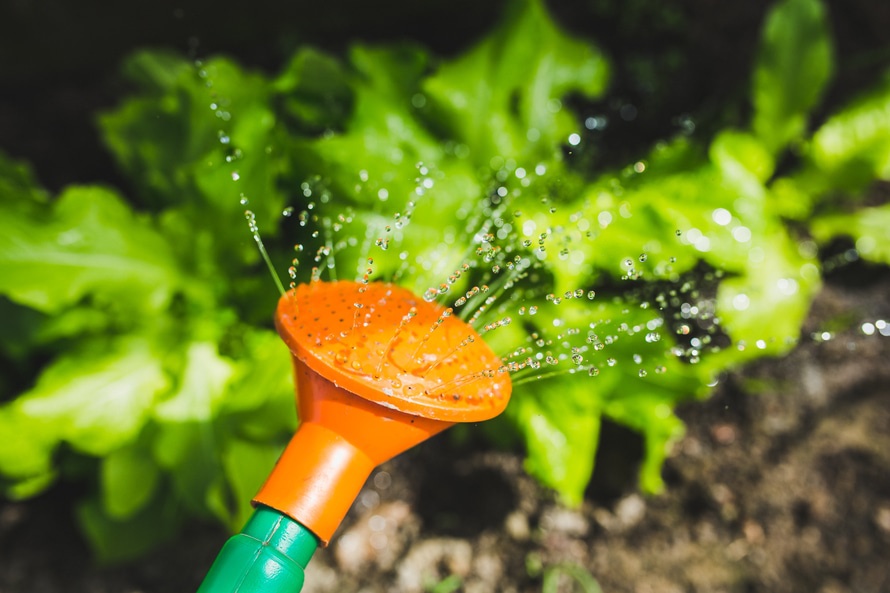By Jacob Gerdes, recent Arizona State University Nutrition Communications Student
Growing up, I loved being outside and that feeling has stuck with me to this day. However, I missed out on one opportunity that could have changed the way I thought about food and our environment, gardening.
It wasn’t until many years later after developing a love for food and nutrition where I decided to give growing my own food a shot. After gathering resources for a raised bed, watching YouTube videos on what to grow and how to tend to my plants, I soon was growing my own radishes, kale, spinach, tomatoes, and beets. While in High School and still growing up, my small garden taught me patience, a sense of humor, and the confidence to grow my own food. Now that I am a bit older, I see the opportunity for today’s youth to garden and the benefits they would receive.

No perfect age exists for gardening but young children have a lot of energy and not a lot of patience so maintaining a garden offers the chance to develop patience. Gardening offers parents the perfect opportunity to spend time with their children and has therapeutic benefits that can help ease a stressful day.
Today, a variety of elementary school programs encourage participating in school gardens and Arizona’s own programs in this area are catching on well. In fact, the University of Arizona is host to a Community and School Garden Program.
Benefits of school gardens have a range of benefits including the development of different skills in areas of math, science, nutrition, and visual arts. Tending to a garden teaches children to respect and care for the environment along with nutrition skills that apply towards developing healthy lifestyles. The University of Arizona’s program, along with others throughout the United States show that besides increasing overall science achievement score, gardening helps children develop knowledge of emotions and communication skills, which leads to improved behavior.
It doesn’t take much to start a small garden if you don’t already have one. I always tell people you need some water, soil, seeds, and patience. Gardens offer a great learning experience for children and can help teach them many lessons that they are able to carry on throughout life. Plus, your local plant nursery can help you start out. Or, check out the Master Gardener program hosted by the University of Arizona’s Cooperative Extension.
Just try it out! If your plants die or seeds don’t sprout, try to assess what might have gone wrong. If you are successful, you could produce food for yourself to enjoy. Either way, your child will learn something and in the process, and you get to spend time with them; which is always precious!
If you liked this post:
– What Kids can Learn from Gardening
References:
- Tampa Bay School Gardening Network. Benefits of School Gardening. Accessed April 22, 2016. URL: http://web3.cas.usf.edu/tbsg/benefitsofschoolgardening.aspx.
- NC State Cooperative Extension. Benefits of a School Garden. Accessed April 22, 2016. URL: https://guilford.ces.ncsu.edu/sgn/benefit/.

